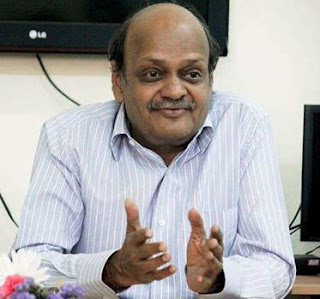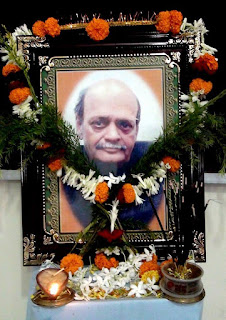Saturday, December 31, 2016
Monday, November 28, 2016
I sent the letter, but...
I Eventually Sent The Letter to
Shrivastava, But….
It is more than a year that I have been out of touch
with most of my old friends, particularly my dear classmate, roommate and
friend, Professor Shrivastava. I have been too preoccupied with having surgery,
the subsequent treatment courses, and the long stay in hospital. Before falling
sick and going under the knife, I received a message from Shrivastava,
informing me of the probability of his coming to Montreal as a visiting
professor. The deterioration of my condition sometime after receiving his
message was such that I almost forgot everything and everyone.
I now feel much better and have vastly
recovered. I am mobile and I write. So
with time on my hands and not knowing anything about my old friends, I
reminisce daily, almost hourly, about Shrivastava and those beautiful, long ago
days in Delhi.
I remember everything as if it was yesterday.
Shrivastava and I were studying in the same class at the Indian Institute of
Mass Communication (IIMC), living in the same room at the same hostel.
Shrivastava was much younger, perhaps six years
younger, than me, but he was already a very skillful journalist and writer who
wrote excellent essays in English and Sanskrit. At the hostel, he would write
essays for newspapers, mostly in Hindi. He would print numerous Devanagari
letters before putting a line on top of them, without which the letters looked
like Avestan writing.
At first I shared a room with two other journalists,
a Bengali named Roy, and Menon, from Kerala. They attended a different course
in journalism, and after a few days they completed the course and left for
their home states. They were good friends of mine and in the first week they
took me around and together we visited most of the historical sites and
monuments of Delhi.
It was during that first week at the hostel that I
became acquainted with Shrivastava. After Menon and Roy left, Srivastava and I became
roommates.
The institute we attended was in Delhi’s South
Extension and the hostel was at Green Park, a twenty-minute walk away. We used
to take a shortcut through the grounds of the All India Medical Institute
Hospital, walking under the shadow of trees and enjoying the nice atmosphere
and beautiful landscape. The hostel was for doctors of the Family Planning
Institute, but journalists were also lodged there. For this, we were teased by
our colleagues who had homes in Delhi: “Be sure you are not seized and castrated,”
they used to caution.
Living with an erudite journalist such as
Shrivastava was instrumental in promoting my language and journalistic skills. With
his knowledge and civility, I could ask for no better companion. He had quite a
sense of humor. Once, in the middle of the night, we were awakened by the
incessant tapping of the watchman’s stick on the pavement of the market below
us. The noise kept us awake for a long time. Srivastava, who was sleeping near
the window, asked me if I understood what the watchman meant by striking his
stick on the pavement? Of course I didn’t, so he explained: “He’s telling thieves
and burglars ‘I am over here; you can do what you like on the other side
without any worry!’” I remembered having read the same joke in the
autobiography of the Egyptian writer Taha Hussein. Later, Shrivastava learned
how to swat pesky mosquitoes between his two hands and how to break two walnuts
by squeezing them in his fist. All this made him the butt of jokes and good humour.
His father was alive then, but he was old and sick.
Once during my stay there, Shrivastava left to visit his father and the rest of
the family who lived in Bhopal, Madhya Pradesh.
Shrivastava was both a teacher and a friend to me; with
him I did not have to worry about anything during my stay in India. Eventually,
the course I was attending was over and I had to return to Kabul. Shrivastava accompanied
me to the airport. The following year I returned to Delhi for only ten days to
attend a book workshop. I stayed at the Ludhi Hotel, and the first person who
came to see me was Shrivastava. I don’t exactly remember whether he was attending
JNU (Jawaherlaal Nehru University) or IIMC at
the time, but I do know that he was pursuing higher education. He visited many
times and we walked about and talked. We had a very good time visiting the
mausoleums of Nizam-ud-din Aulia and Mirza Ghaleb, as well as wandering about
at Connaught Place. Once our classmate, Oma Yadav, invited us over for dinner and
we spent the evening reminiscing and sharing pleasant memories from our time at
IIMC.
Back in Kabul, the situation changed, and I,
together with thousands of other Kabul residents, was forced to leave the
country. The next 19 years I spent outside my country, without any information or
news of any of my Indian classmates, particularly of my dear friend
Shrivastava. In 2002 I had the good fortune of being able to immigrate to my
new country, Canada. I very often recalled the good times I had spent in India,
and was keen to find out where Shrivastava was and what he was doing. Now there was the internet, so opening the IIMC
website I was delighted to learn that my old friend was now an eminent
professor there. I tried to establish contact through email and found the email
address of one Abhilasha. We had a classmate by the name of Abhilasha back in
the day, so I wrote her in the hope of getting a link to my friend Shrivastava.
Abhilasha replied that she was not the classmate I thought she was, but kindly
promised to find Professor Shrivastava’s email address for me.
How delighted I was when I received my first letter
from Professor Shrivastava after so many years. It was as if we were again
together in the journalism class at IIMC. I learned that Shrivastava was a senior-most
professor who frequently made trips to all over India to lecture and teach.
Through him, I found out that our Kashmiri classmate Gita Dhar, now Gita
Bamzai, was also a professor at the IIMC and our other classmate Lalliet
Kashvani, now Lalliet Dubi, had become a great actress and was now retired, with
her daughter having replaced her as an actress.
How excited I was when Professor Shrivastava
informed me, shortly before the onset of my debilitating illness, of the
likelihood of his coming to Montreal as a visiting professor! But illness
struck, and before long I found myself at the mouth of the grave and staring
death in the face. For months I lived with excruciating pain which made me forgot
almost everything. Fate, wonderful doctors and kind nurses snatched me from
death’s embrace and brought me back to stability. Gradually, I got better and
better.
It is now over a year from when I had surgery. Although
still under treatment, I am well enough to recall fond memories of past years.
Some time ago, I remembered my pre-hospitalisation anticipation of Professor
Shrivastava’s trip to Montreal. I believed he would be accessible through email
wherever he was. I wrote him briefly about my condition and what I had gone
through, and asked whether he was in Montreal or in Delhi. As usual, I expected
him to answer within a few hours. Not receiving
a reply, I reasoned to myself that he was busy with his academic trips. To
check, I opened the website of our alma mater, IIMC, and was devastated to read
this distressing obituary:
“MOURNING KM
SHRIVASTAVA
Professor KM
Shrivastava
Prof KM Shrivastava
senior-most professor at Indian Institute of Mass Communication (IIMC) New
Delhi, collapsed suddenly last Friday night (28 August) at the Nizammuddin
Railway Station, New Delhi. He was 63. He had just returned to Delhi from IIMC
-Jammu and reached Nizammuddin Railway Station from the Delhi Airport to board
a train for Bhopal. Prof Shrivastava was with a former student, who had come to
drop him at the station, when he collapsed. Prof Shrivastava was rushed to All
India Institute of Medical Science's Trauma Centre but was declared dead on
arrival….”
August 28, 2015 was just one month before the date
of my surgery.
Asef Fekrat
Ottawa, November 28, 2016
Thank to Dr. H. Simab for editing this article
Asef Fekrat
Ottawa, November 28, 2016
Subscribe to:
Posts (Atom)


